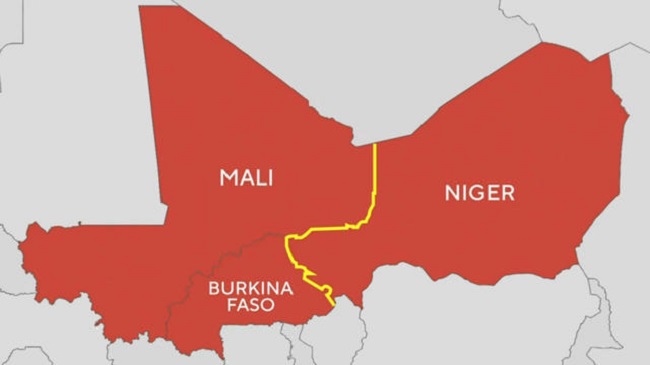Mali has formally ratified the agreement that creates the Confederation of Sahel States, reinforcing its partnership with Burkina Faso and Niger to improve defense, diplomacy, and development in the Sahel region. The ratification also effectively separates Mali from the Economic Community of West African States (ECOWAS)
During a plenary session on November 1, 2024, Mali’s National Transitional Council (NTC) unanimously ratified the treaty.
The treaty was originally signed on July 6, 2024, in Niamey, Niger Republic. It is founded on three key principles: defense and security, diplomacy, and development – a holistic approach to regional collaboration.
Malian President of the Transition, General Assimi Goïta, has been assigned the first presidency of the AES, underlining Mali’s crucial position in this emerging regional framework.
Malian officials state that this ratification is in line with Mali’s constitutional principles, particularly its dedication to African unity. It signifies the beginning of a new phase of enhanced cooperation among member states based on fraternity, solidarity, and friendship.
In September 2023, the leaders of Mali, Burkina Faso, and Niger established the founding charter of the Alliance of Sahel States.
Following this, in January 2024, these countries exited ECOWAS, citing the organization’s susceptibility to external influences, especially from France.
The creation of the Confederation in July means a divorce of these nations from ECOWAS.
In response to this change, ECOWAS assigned Senegalese President Bassirou Diomaye Faye and Togolese President Faure Gnassingbé to engage with AES leaders in talks to discourage their exit. It now appears to be an effort in futility.
Implications of AES
Meanwhile, Burkina Faso’s National Assembly has also approved constitutional modifications to enable the nation’s participation in regional coalitions like the AES.
Ivan Lochkarev, an expert from the Moscow State Institute of International Relations, perceives the AES as a viable alternative to Western-led regional integration frameworks.
He has criticized other African alliances, such as ECOWAS and the East African Community, for being simplistic imitations of Western models that do not meet the evolving needs of local communities.
The formation of two blocs in West Africa—the AES and ECOWAS—could complicate regional security and weaken the subregion’s aspirations for greater economic and political integration. The AES’s increasing strategic alliance with Russia may also make West Africa a potential flashpoint for future geopolitical contestations between the Sino-Russian bloc and the West.
Comment, Like 👍, share this article, and Follow us on our social media handles.







